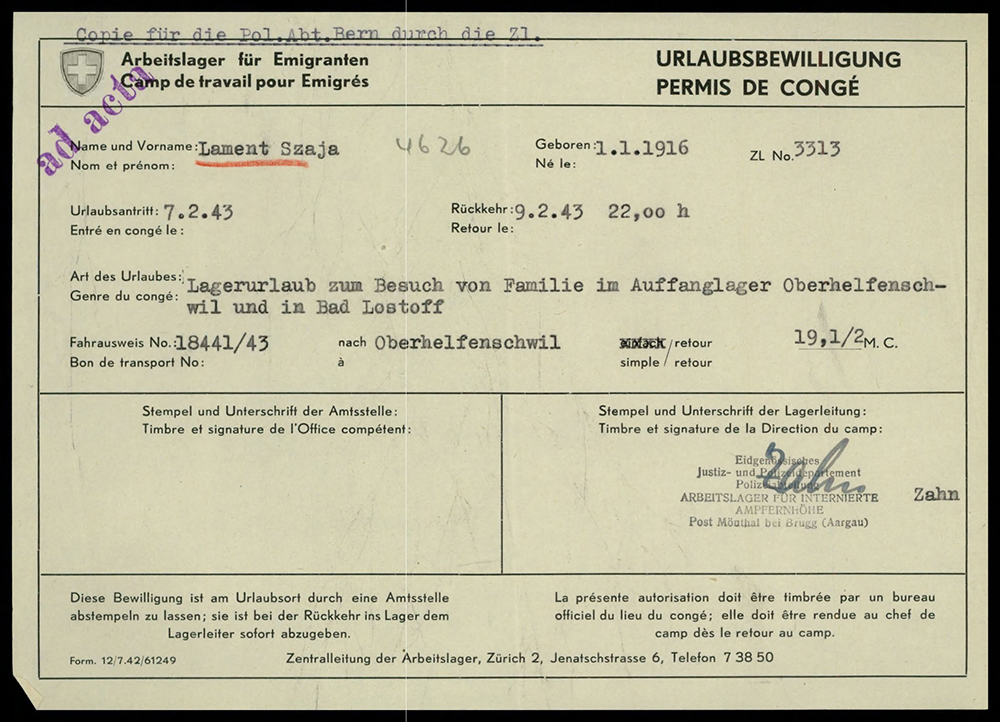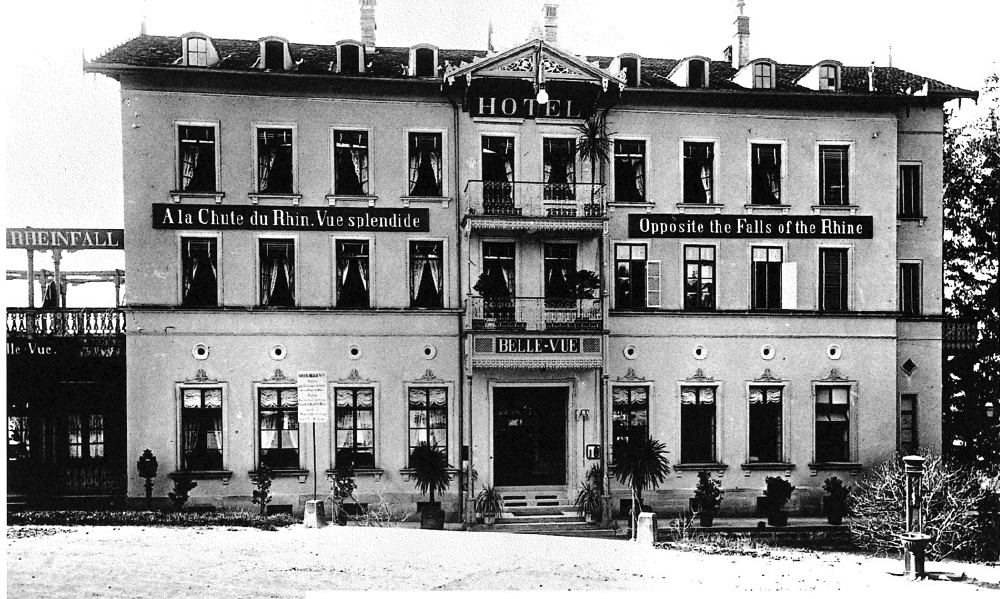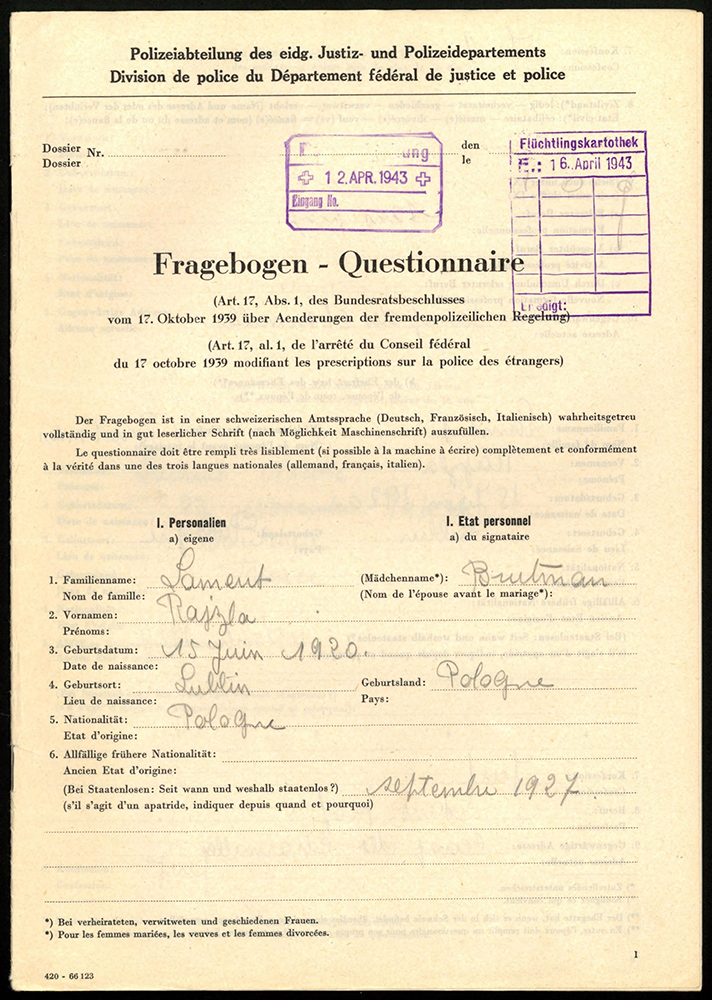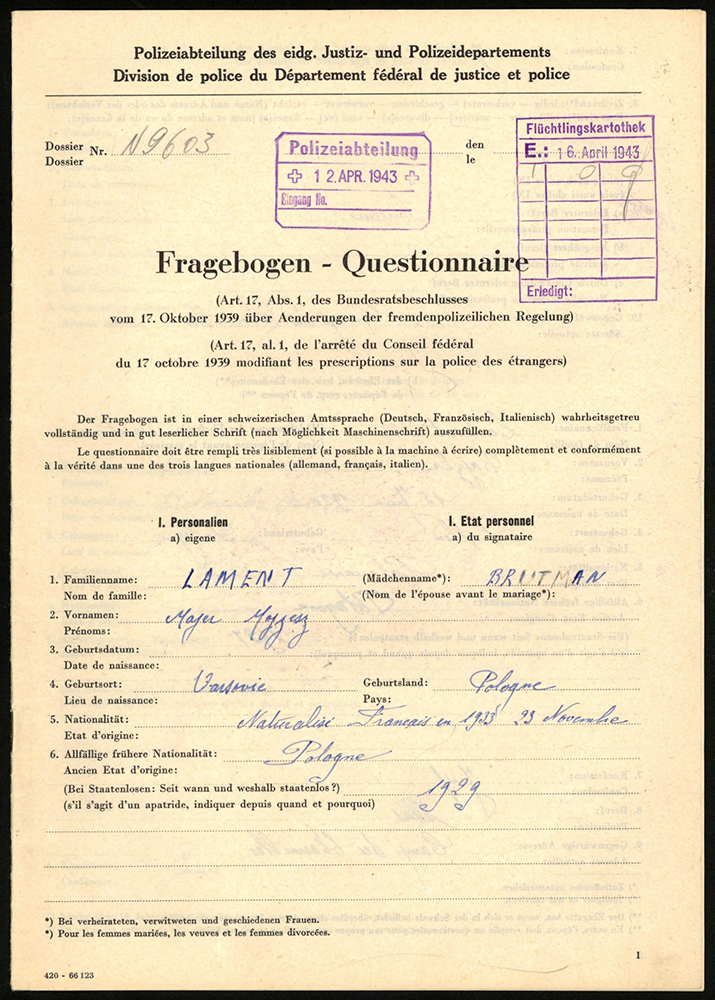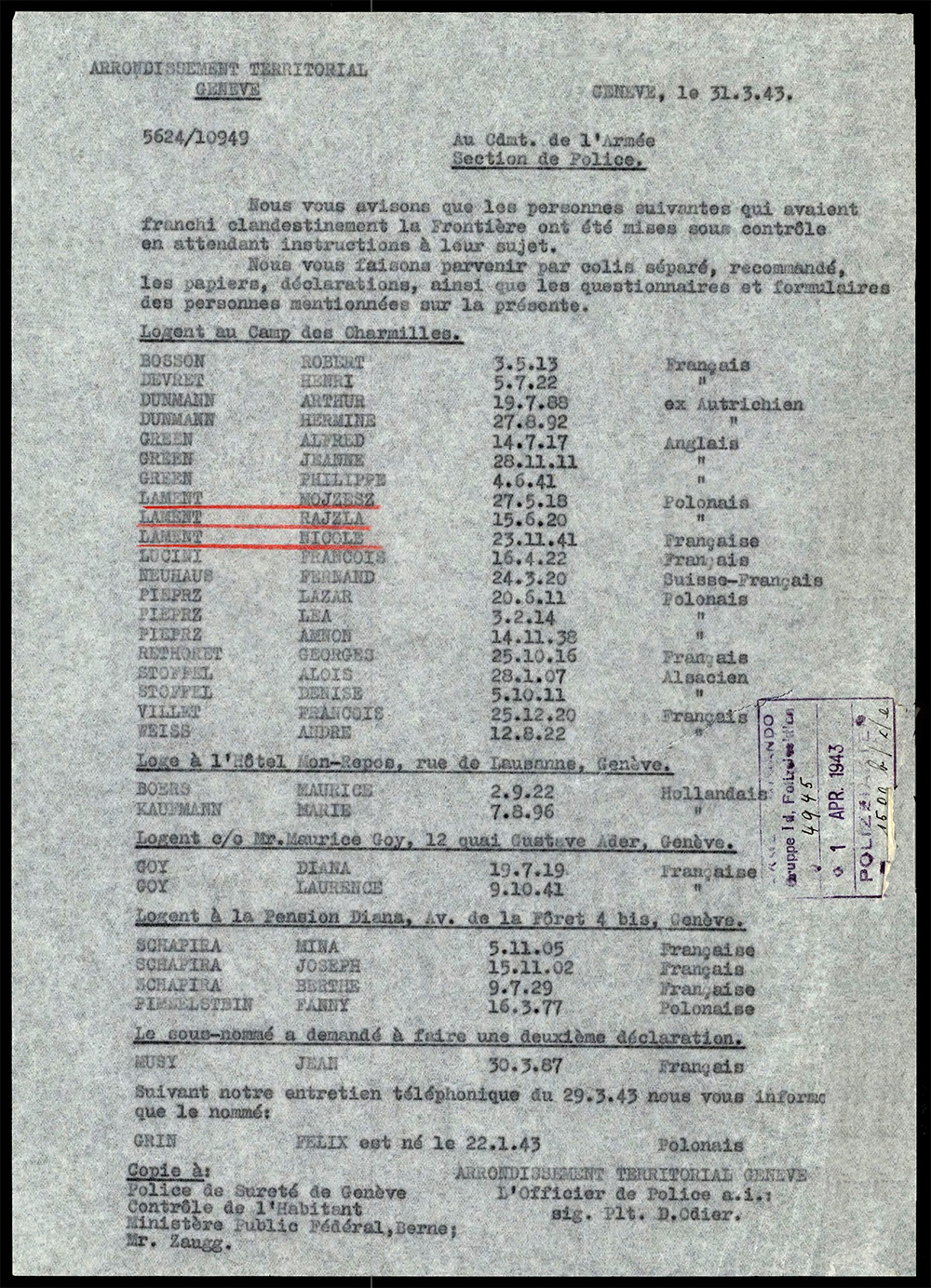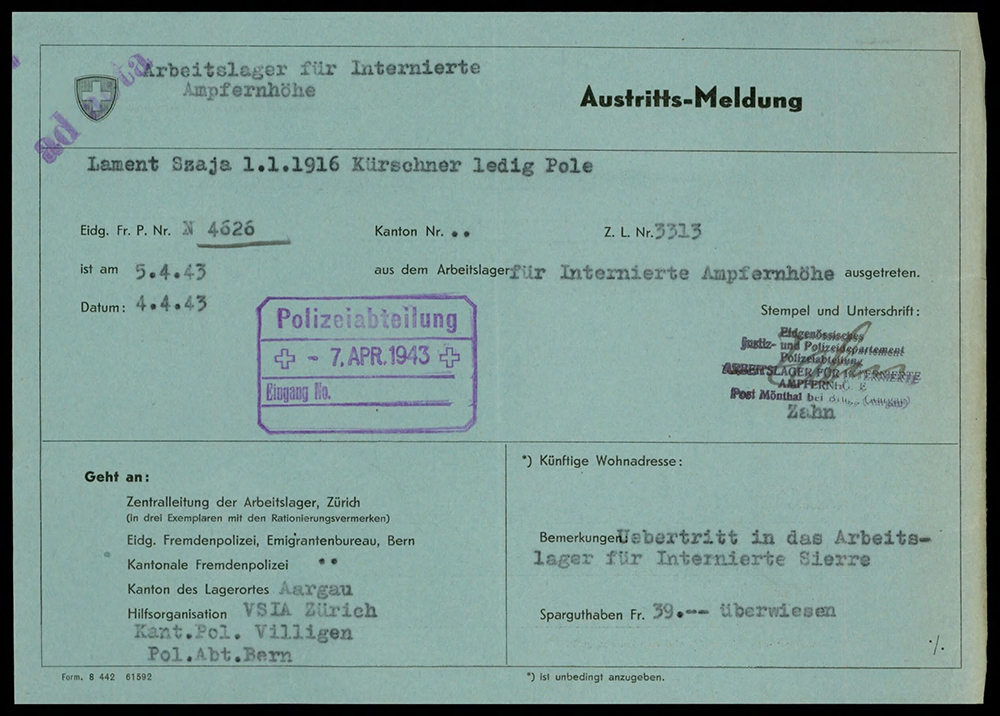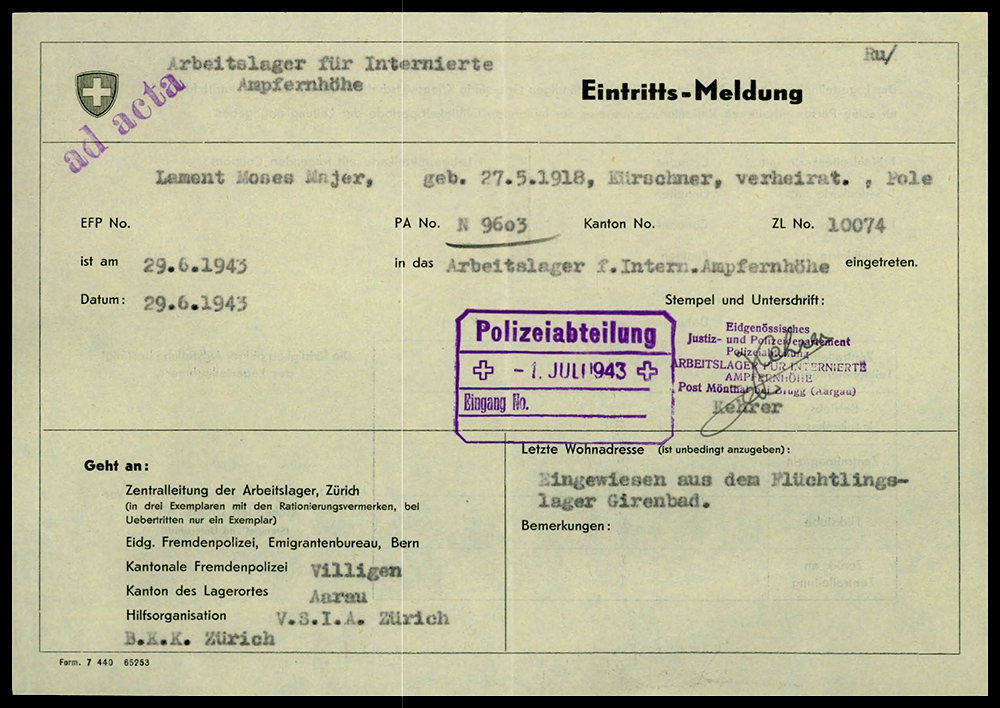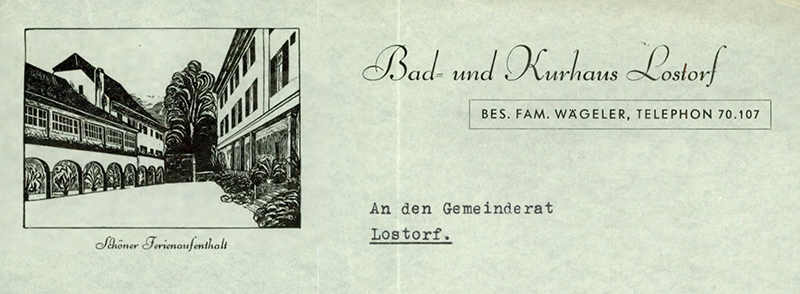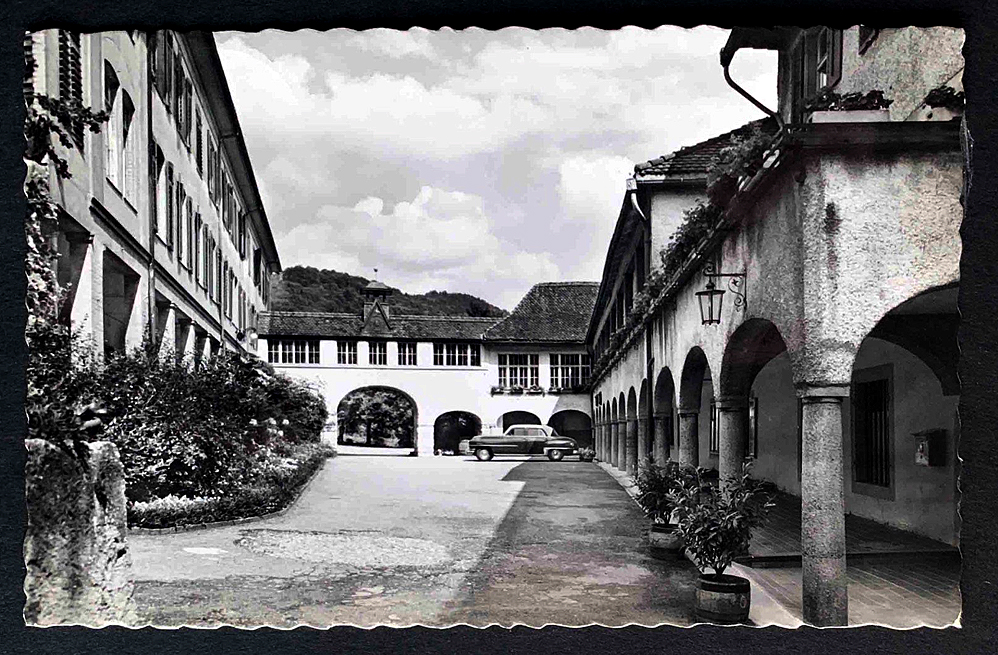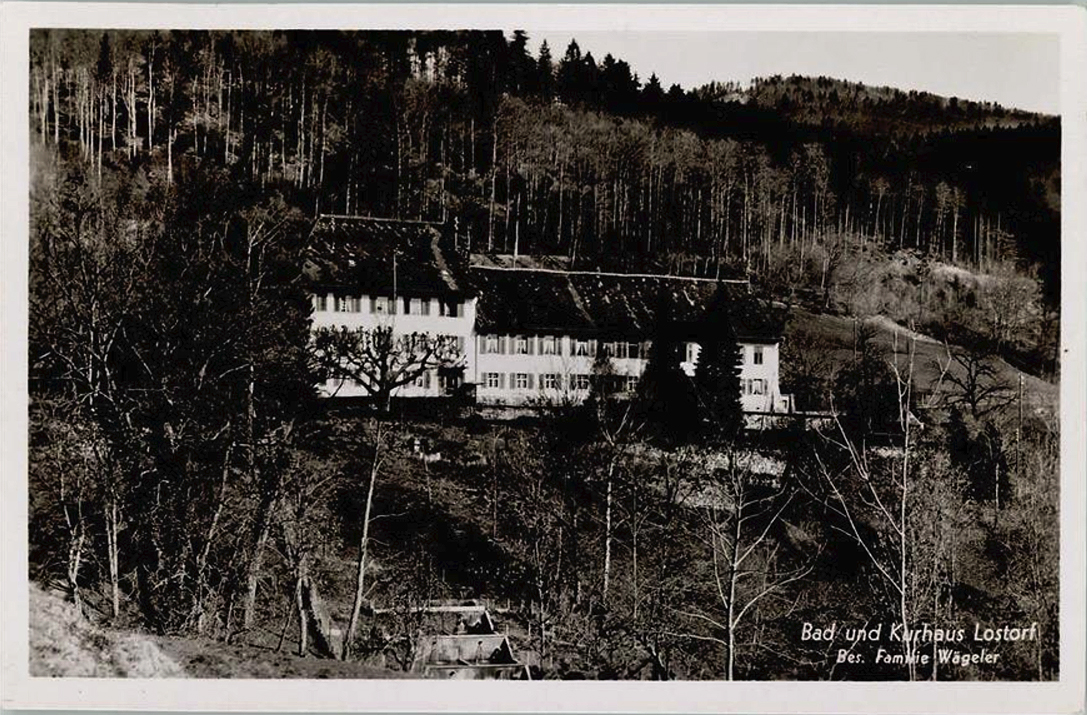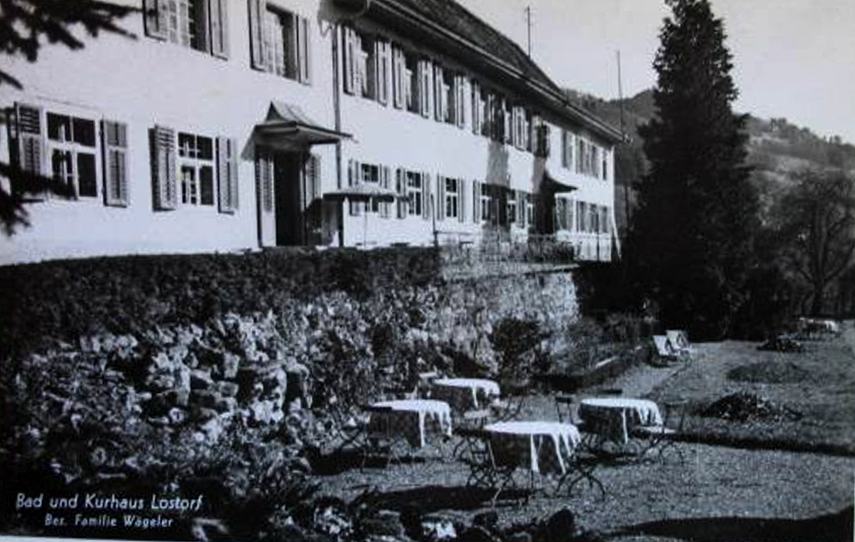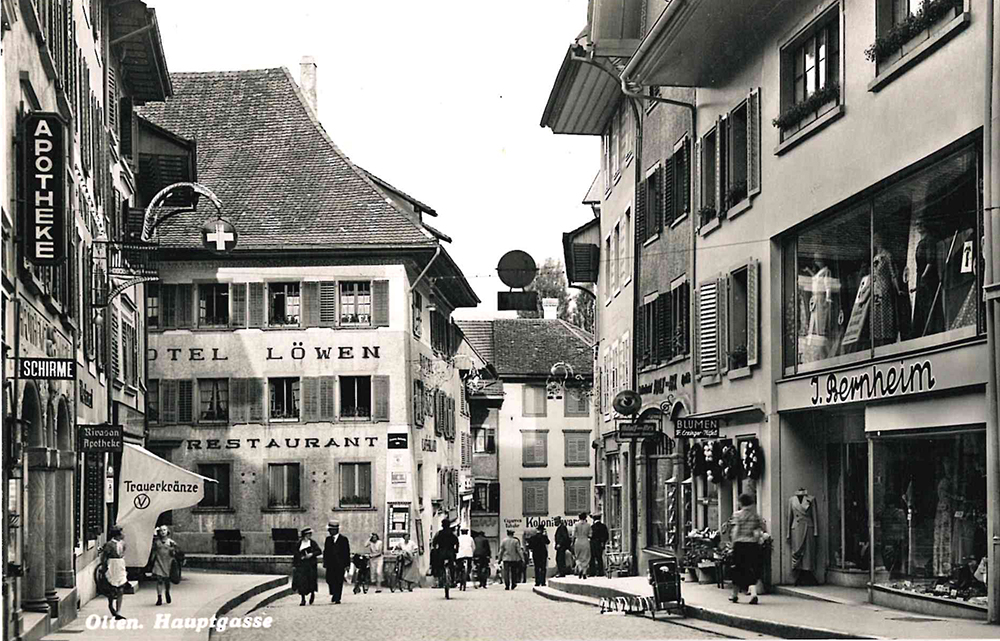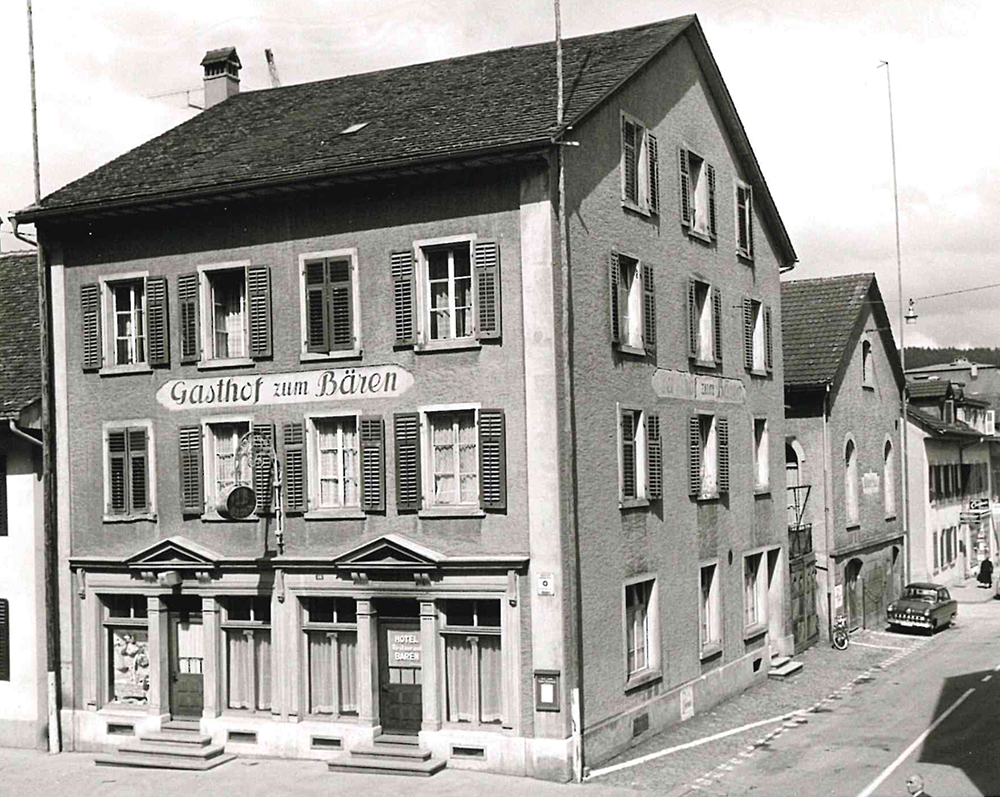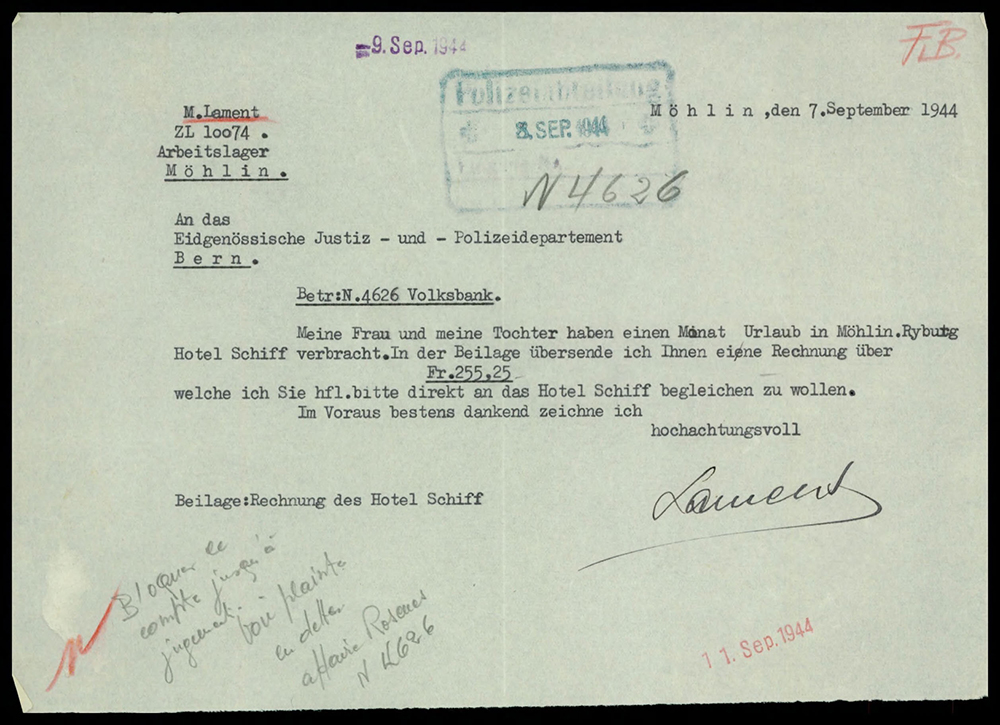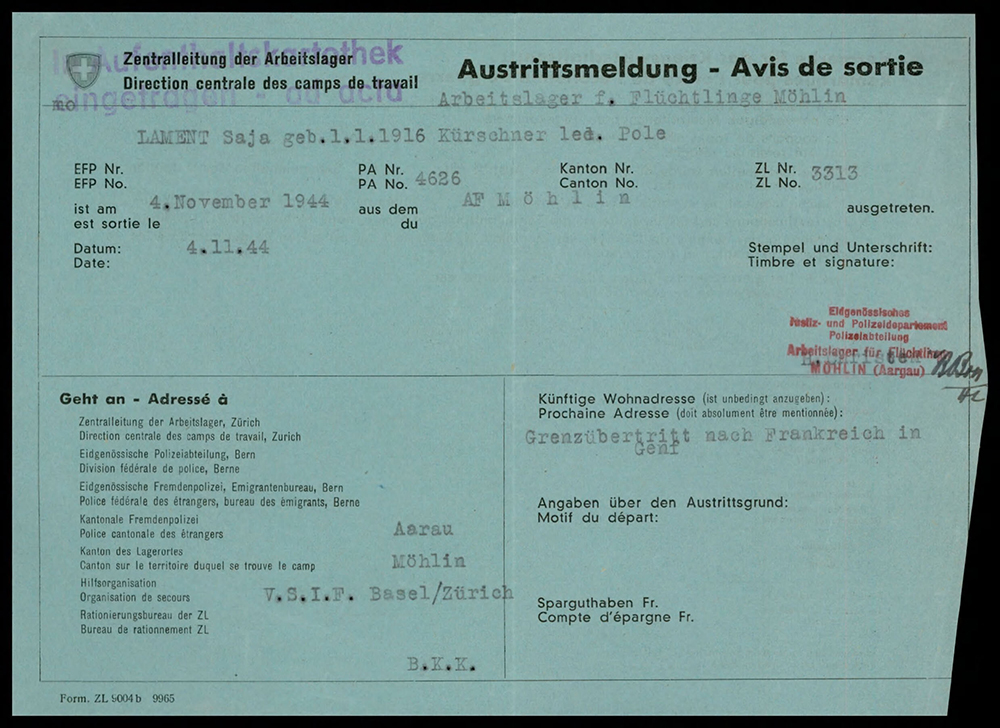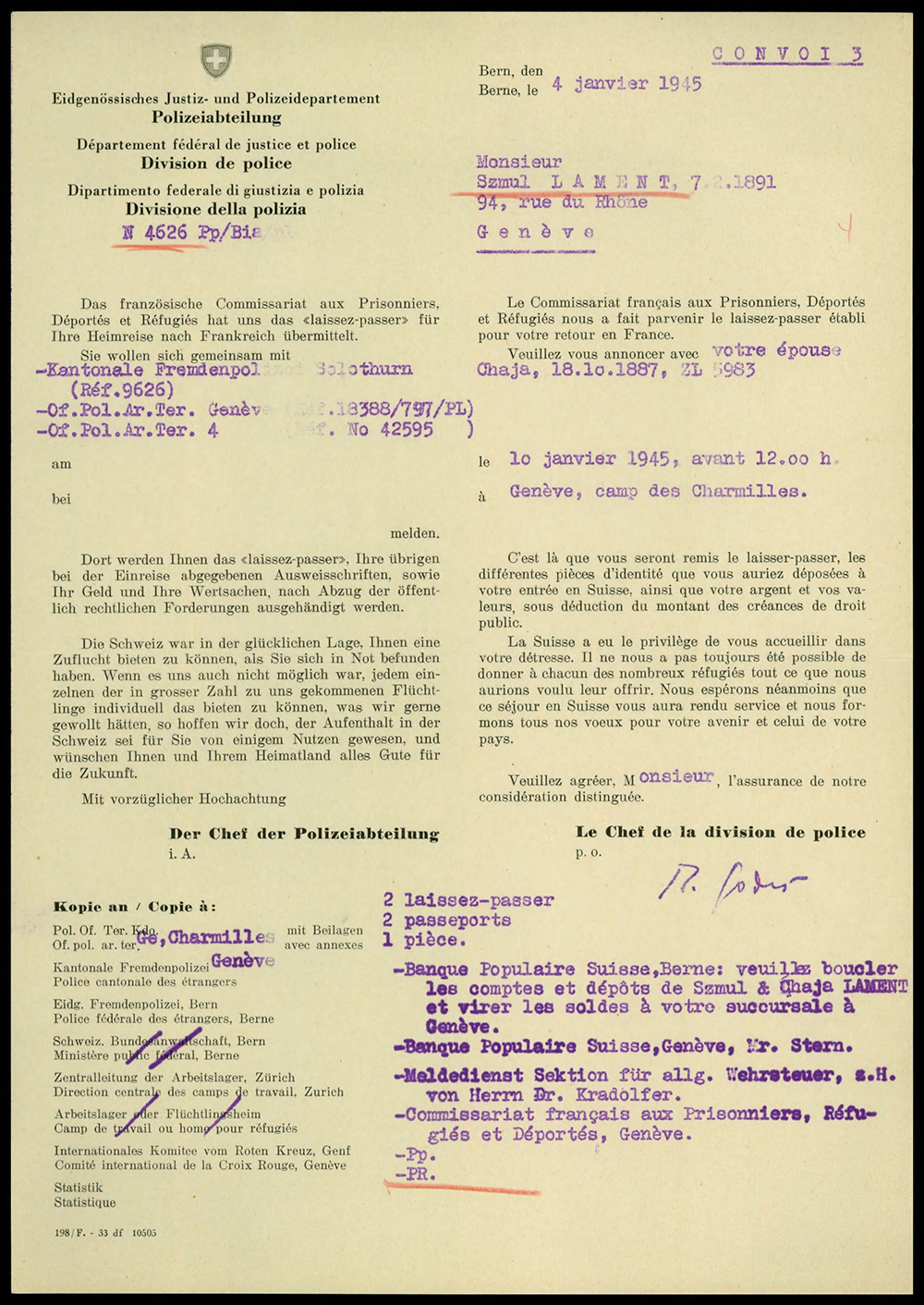|
|||
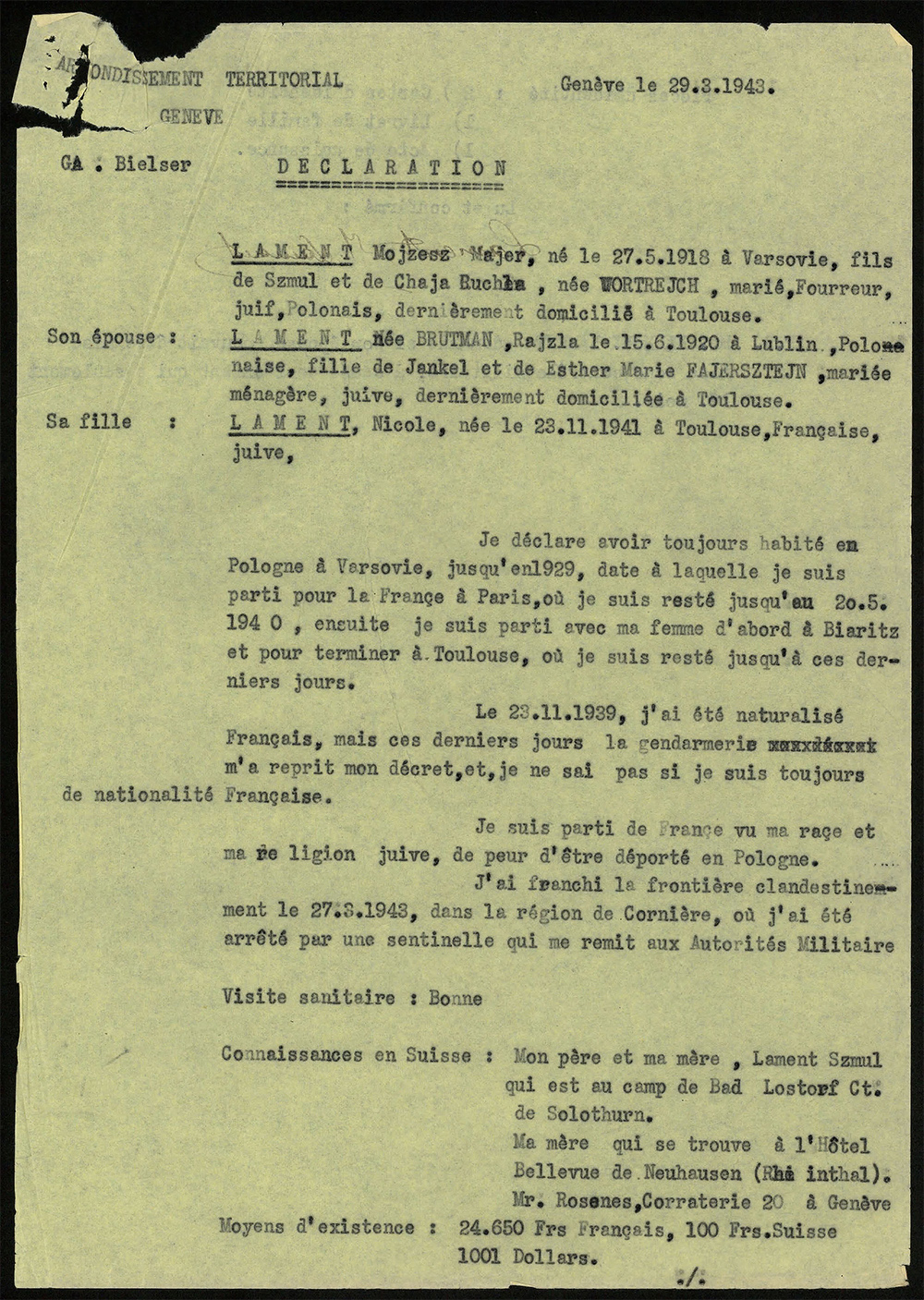  |
Translation I declare that I have always lived in Warsaw, Poland until 1929, when I left for France in Paris,where I stayed until May 20 1940. The I left with my wife, first for Biaritz and finally for Toulouse, where I stayed until these last few days. On November 23, 1939 I was naturalized French, but a few days ago the police took back my decree (French naturalization documentation) and I do not know if I still have French nationality. I left France because of my race and Jewish religion, for fear of being deported to Poland. I crossed the border clandestinely on March 27, 1943 in the Corniere region where I was arrested by a sentry who handed me over to the Military Authorities. Health check: Good Aquantances in Switzerland: My father and mother. Zmul Lament who is at the Bad Lostorf Camp in the Canton of Solothurn. |
||
We were put to one side with an Italian diplomat. On the other side there are other people who had also crossed the border. A selection... We were on the right side... A woman brought milk for Nicole; we started to breathe, we had not been told anything yet, but...
In retrospect, this episode in our lives seems like just one of many, but we were at a critical point.
To be admitted or refused ? ADMITTED.
Switzerland, why?
If we were not aware of what was really happening in the heart of Germany, Austria and Poland, then the Swiss, Americans, French, English knew it.
I will try to analyze briefly what happened.
Switzerland at the end of 1944, in relation to its area, was saturated with refugees. They said that Noah's Ark was full. It was in 1942, after a report on Auschwitz and the massacre of Hungarian Jews, that the Swiss authorities decided that in matters of asylum, they would give the status of political refugees to the Jews, in order to preserve the "Swiss Neutrality", because by welcoming too many Jews, they could give Hitler a pretext to invade Switzerland.
The number of undesirable Jews who were rejected, was estimated to be 30,000 and the number of Jews like us, accepted, was 22,000, but above all by a police commissioner, a man of courage and heart, PAUL GRÜNINGER, until one of his subordinates denounced him..... and he was then dismissed and put into early retirement.Time spent in Switzerland
| 31 March 1943: Les Charmilles - a reception camp for refugees in Geneva where we spent some time. It was a temporary building for refugees who arrived every day. The camp was in quarantine to allow us to register, to sort out those who can be released to live in a hotel, residence, family camp or work camp for those who have opted to do various jobs. We were assigned to a work camp but which had some freedoms. We were given a small monthly salary, and thanks to this, we could, among other things, take advantage of a pass to see our family, although this did not happen for some time. |
||
|
|
|
|
| 4 April 1943: David and Szyja, based in Ampferhohe were sent to an Internment Camp in Sierra/Siders in the Canton of Wallis for a temporary assignment. Szmul was based in Busserach Camp. | ||
| May 1943 | ||
|
||||||
On leaving the transit camp, the three of us were initially assigned to the military-controlled camp in Gyrenbad (Zurich) The camp was on a hill. Every day the mail wagon went to town to bring the mail and some supplies we bought for Nicole. We often received mail or a small parcel from my parents, sometimes with a knitted fabric and inside the ball of wool, either a little money, or food coupons. Emile Helman (JewishGen.org - born 7 May 1907, arrived in Switzerland 26 March 1943) often provided us with supplies. I, among others, worked in the canteen which gave us an added bonus with the leftovers. It was always a special privilege to work in the canteen. Rosa had entrusted Nicole to the camp commander, and she was put in charge of doing the women's hair or working with potatoes. We slept in communal rooms on straw mats, the men together, the women separated with the children. If by chance someone had complained to the camp commander, he could have sent Nicole to the hospital for sick children. Rosa's feast There were at least 15 to 17 different divisions in the organization for processing refugees, from the frontier to the border guard, passing through selection, then to an assembly camp, then the quarantine camp, then the camp for us but not for everybody. Camps under military direction etc depending on whether they were civilians, soldiers, from the French maquis, from this or that country, but above all, Jews. |
||||||
On a special leave we walked through a town, and saw the shop windows full of food; we stood petrified in front of them, our noses glued to the window pane, and we drooled at what we saw. Rosa went inside to buy something for Nicole and came out with a salt pickle.The choice made because of the cost!
Another time, which today has become an anecdote for us, during a special leave we were walking with Nicole, and my wife wanted to treat me to something with the little money we had. She decided to buy a pigeon. She prepared it with small onions for the evening meal. We each took a leg, the rest we put on the night table to have another feast the following day. The smell of the beast made us salivate all through the night.
Rosa went with Nicole to join my parents at the camp in Adliswil and then to Bad Lostof. My brothers and I got permission to see the family. In the Ampfernhohe labour camp we were employed building roads and making fortifications on the German border. We were sent from the Ampfernhohe camp as a special group to supply wood to the children's homes in the mountains above Champéry. The children were often with their mothers. For us it was a rather hard job, considering my state of health, which was not very good. Then we were given leave to see our families with a new assignment. In the kitchen the chef was absent, so I offered myself until he returned. I only had a few potatoes, a piece of meat, about 500 grams, some bread and importantly my piece of fat. I asked an old hand who had to leave the next day if he could get me some eggs. I found a resourceful man who said that in the storeroom they often had tins of food, and if I had the key... another resourceful man said .... that before leaving he would give me the key in exchange for some cigarettes. The deal was done. "Motus et boule de gomme". I was in possession of a treasure and the only one who knew it. With two cans of sardines the first resourceful man brought me 12 eggs. |
I started to make the meal which divided and shared would have represented only a small portion for each of the young and hard-working guys, but with the addition of some pieces of bread, onions, my pig fat, the dozen eggs, the combination thus made with sauce provided two "klops" dumplings per person.
The camp leader was served in his room with two large dumplings, steamed potatoes, fried onions, all sprinkled with a liquid from a mysterious little bottle, a bottle taken from a shelf and reserved only for the camp leader, this information was disclosed to me by the second resourceful man. I had no idea what was in it.
I dream, I see the camp leader coming out of his room and saying:
Ver chât hojte das kuche gemarte?
Who cooked today?
Ich. Me
Si verden Kuchen chef zajn.
I want you to be a chef.
Danke. Thank you.
I can tell you that arriving early with a bundle of fat got me out of a hard job that I couldn't have done for long.
The next day, my brothers arrived with the others, and my resourceful men were gone.
| October - December 1943 | |
|---|---|
My parents also went through various camps before being released to go to a hotel, a rented room with a kitchen, naturally at their own expense. Rosa and Nicole joined them on my father's urging to the Swiss authorities, and especially by guaranteeing the financial support. In addition to my parents' guarantee, we had to find a Swiss resident to act as guarantor for us. My father, to everyone's delight , found one. A guarantee had to be deposited in Rosa's name at the bank in Bern. So they were able to get together, Dad, Mum, Rosa, Nicole in Olten. They rented two rooms with kitchen facilities in the hotel. My father thanked this Swiss citizen by giving him a Swiss watch which made him happy. |
October 13th: From the Swiss Army Command gives Szmul, Chaja, Rajzla and Nicole permission to move from Lostorf to Olten |
Hotel Lowen: October 21st 1943 to ..... Hotel Lowen |
|
The winter was approaching, the men took care of cutting down trees, preparing logs, loading them onto sled-like carts, and getting the cart down a track. One man was in front, bending over with his back to the cart to hold it in place, his legs braced on the logs to hold it in place, all down a slope worthy of a runway at the Olympic Games. Unfortunately, there were some accidents during this work.
In the evening the men came back from their day's work soaked to the bone, men, clothes and equipment. All were exhausted; Thanks to my work in the kitchen, I could dry everything during the night and prepare the most nourishing dishes to help them get through the following day. On Sundays we were allowed to mix with other refugees, eat with them, and most importantly have contact and news from the outside.
This is also the things in life ... my SHOAH
What follows is what I felt when I learned what was happening in the concentration camps, but it is also affected by the years and what has been learned since then, but when fifty-six years ago I learned that the Nazi barbarism, the most bestial cult, the torture, the massacres, the exterminations, against the "untermench", the sub-humans.
This dreadful gangrene of the Untermench will spread like an oil stain over Europe and the Nazi world.
Himmler in his speech in Posem on October 4, 1943 said:
I would like to talk about the extermination of the Jews, the extermination of the Jewish people, that is something that is easy to talk about, that is a glorious page of our history that has never been described and never will be...
I would like to see the shame of the past, but also the vigilance of the present or the future, passed on from generation to generation as a duty of memory. It is a duty for all of us, because this past for some is nostalgia that a spark can reignite, that could turn into reality, because without permanent vigilance, the fangs and the snout of the foul beast could reappear worse than the barbarism that Nazism and Fascism embody. To combat this barbarism, there is only one answer: to reconcile universal values with the personal values, so that each person can develop their own identity, and preserve and transmit the history of the SHOAH.
To receive as an inheritance the massacres of the Jewish people, and that freedom is heavy to bear. The fight against barbarism is never over. We must always remember all those who died so that we could be free. To the six million of my brothers and sisters tortured, massacred and burned alive.
Nicole's doll
It is Christmas 1943, and as the only residents of the hotel we were invited to the Christmas tree by the owners.
Under the tree, presents were given. Nicole, the star of the evening, was given the task of distributing the presents by "Aunt Heidi", as she wanted Nicole to call her. After the meal a present for "Aunt Heidi", a present for "Daddy from the kitchen". The merry-go-round lasted for a while, and to everyone's surprise, they gave a beautiful doll to Nicole. Our hosts had no children and we were the extras.
So, after the meal and the distribution of the presents, Nicole was with her beautiful doll, but oh surprise ! "Aunt Heidi" took the doll back from Nicole . My mother heard about this story and made her a beautiful rag doll with a towel, and my daughter was able to go to bed holding her doll in her little arms and fell asleep like a little angel.
Thank you "Aunt Heidi" for the party! ! ...
| January 1944 | |||
|---|---|---|---|
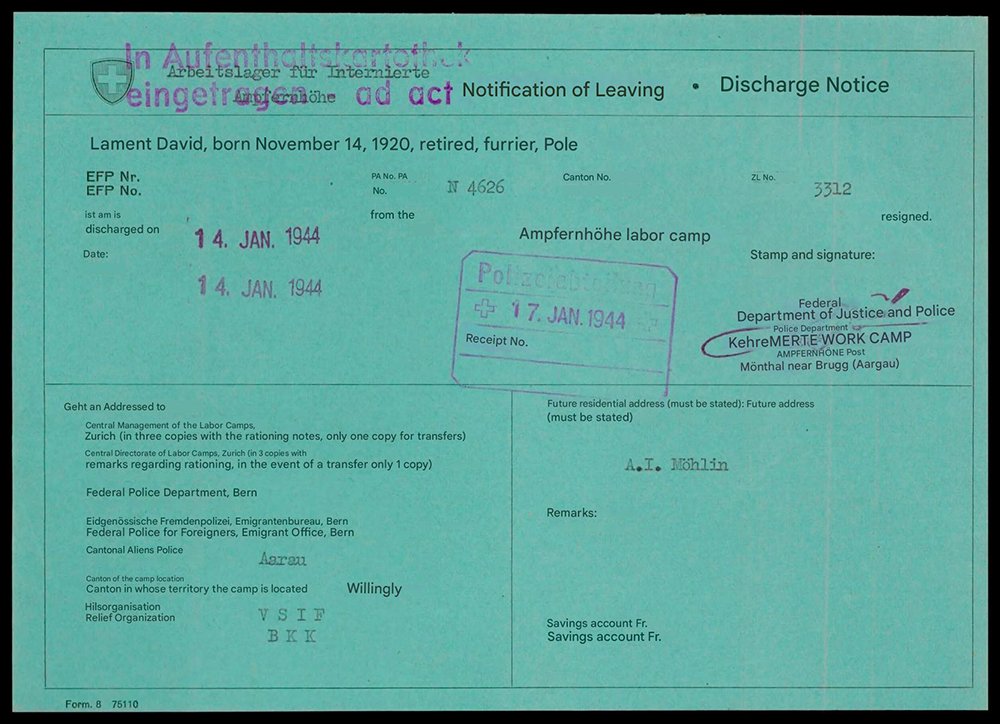 |
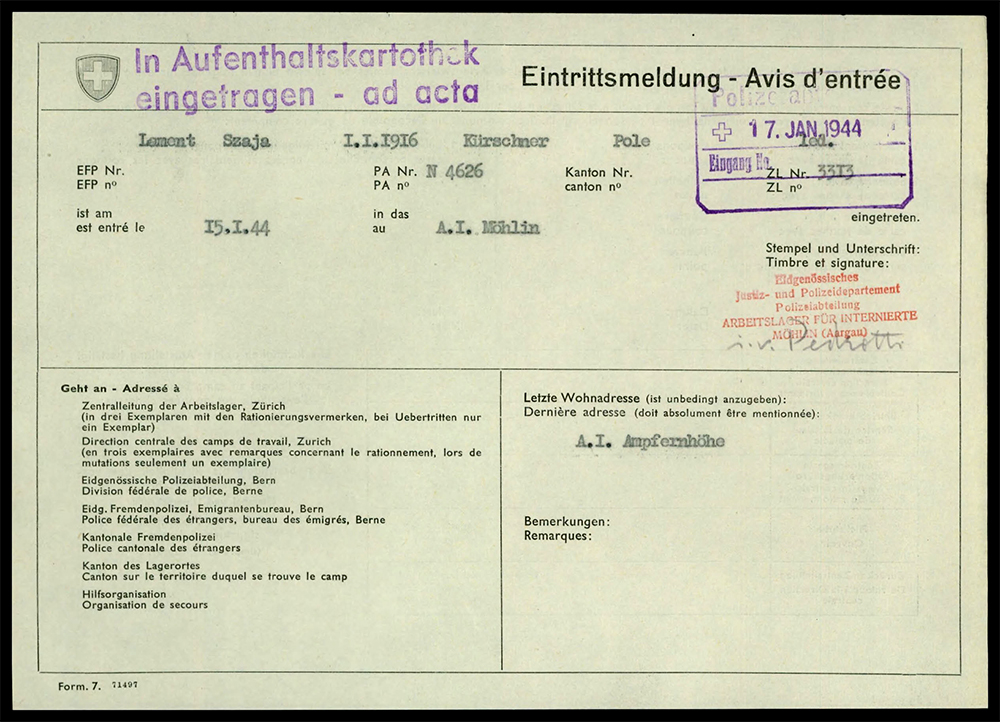 |
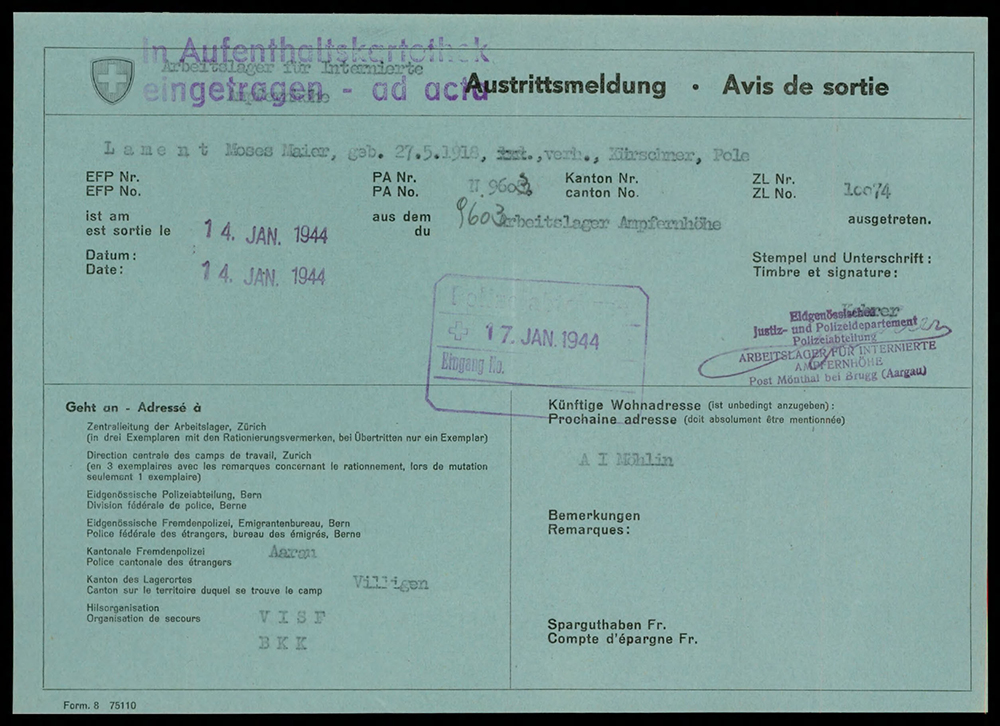 |
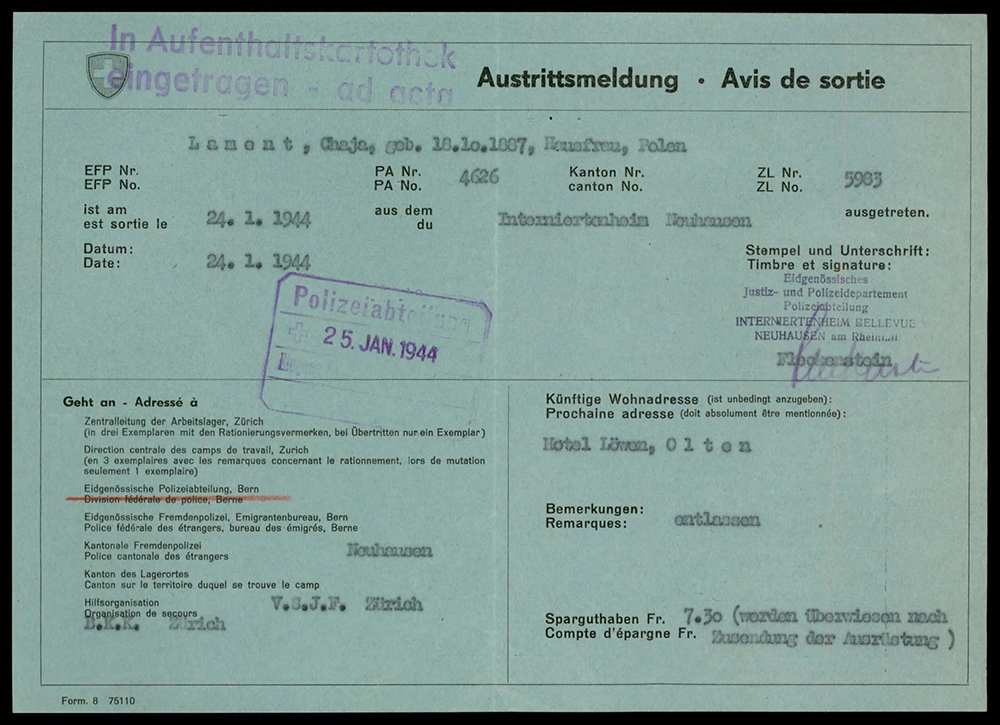 |
| David, Szyja and Maurice are transferred from Ampfernhohe to the Mohlin Camp. Chaja moves from the Bellevue Internment Home in Neuhausen to Hotel Lowen to be with Szmul. |
|||
| April 1944 | |
Rosa's illness Rosa was suffering from stomach aches. She consulted a doctor, but no one could help her. With the worries about her parents who were in the midst of the turmoil, with everything we had gone through, it was not surprising! My wife's condition was getting worse by the day, from X-rays to doctors, they sent her to hospital. My father visited her every day with Nicole. Various diagnoses were given. My father decided to take Rosa out of the hospital. I came to see my family on leave and we went to see another doctor. The only thing he could say was: Zij chaben zo fil nach die marbte To cover up his incompetence... When I came out of the doctor's surgery, my wife was incredibly weak and thin, with no appetite and no desire to eat. In a consultation at the hospital in Aarau, my father told the doctor that we were refugees, and that he would do everything to save his daughter-in-law. The doctor replied that she was too weak to have an X-ray, and he put her in a hospital for broncho-pulmonary or tuberculosis so that she could "get healthy again". Time passed like the hourglass of life flowing with regularity. Wiith time, Rosa regained some of her strength. Rosa was sick in Olten. Coughing, with a fever, we bought mustard to make a poultice, and Nicole climbed on a chair to be on top of the situation, and put the poultice on my wife's chest with her little hands. | |
|
17th - 29th April 1944 |
Hote Baren |
| May to September 1944 | |||
|---|---|---|---|
We bring in the family In the work camp where I was based in Mohlin, there was a refugee, Mr Karlin, who had a job in the camp office. He had a wife and a child about Nicole's age. They were in a refugee home, half an hour's walk from our camp. Karlin and I moved our wives and children to a hotel in Ryburg, so that we could see them more often. It's summer, everything was fine. Meanwhile, we learnt about the atrocities that we would have faced, and that thanks to our Swiss haven, and at the urging and insistence of my mother who showed us the way forward that we could once again save ourselves, the first time in 1929 leaving Poland, the second fleeing the laws of Vichy. She showed us the way, and we followed her. I owe it to Switzerland to have survived with my family, as well as my parents and my brothers, and that the Swiss have treated us most of the time with humanity. |
|||
The Hotel Maurice refers to was most probably the Hotel Schiff in Ryburg mentioned in one of the Swiss documents where Rajzla and Nicole stayed for a while in the summer of 1944. Maurice, David and Szyja were in the Mohlin Camp. Historical Note: Jewish refugees began their return to France ~ August 1944 as the Nazi regime ended and the Vichy Government collapsed. However, proof of citizenship of France was a necessary requirement. |
|
||
| October 1944 | |
Rosa and Nicole went with my parents to Geneva, to a hotel in the centre of the city that rents rooms with kitchen facilities for refugees. Often, to Nicole's delight, they went to the Grand Passage, to a café where a band played every afternoon. The musicians, having noticed Nicole, knowing that she came from France, pleased her by playing tunes like "dans un coin de mon pays". | |
The first mention of an address in Geneva is on a form dated 24 October 1944 as 94 Rue de Rhone where Zmul and Chaja were staying. In December Zmul's address is given as 1 Rue Robert Estienne, which was around the corner from the clinic where Chaja was being treated. However this appears to have been a temporary move as he was officially meant to be in Olten and was asking for leave to be in Geneva to be extended. 15 October 1944: Maurice's Refugee Card - he is sent to the Champery refugee camp in Valais. | |
| November - December 1944 | |
|
Liberation The political situation was discussed by the men in the camp. We followed the defeat in Russia, the landing in Normandy, the liberation of France, but the Germans were still in the Ardennes. Without waiting for the end of the war my brothers returned to Paris ahead of me. I left Switzerland 10 days before my parents and arrived on December 25, 1944 in FRANCE. | |
|
4 November 1944: David and Szyja return to France |
16 December: Maurice requested to report to the Charmilles Camp in Geneva on December 21 before noon where he will receive his pass to return to France. |
I waited for my wife and my daughter to arrive at Annemasse in a reception center where I was lending a helping hand to receive all the refugees. I was given the task of taking care of the cloakroom, not to keep the coats, but to offer them to those who need them.
The most precious thing in the world, my wife, my daughter and my parents, arrived.
|
Rajzla and Nicole were requested to report to the Charmilles Camp on 1 January 1945 before noon where they would receive their passes to return to France. |
Szmul and Chaja were requested to report to the Charmilles Camp in Geneva on 1 January 1945 before noon where they would receive their passes to return to France. |
Our return to Paris
My brothers have come from Paris to collect us , and we go back to 18 rue de l'Echiquier in PARIS in a taxi.
First of all, we went to my parents-in-law who returned from Toulouse unscathed, thanks to Marinette. The flat was empty, my wife was ill, her parents were given cots by the town hall, like soldiers on campaign, and life resumed, with difficulty, but with courage.
And this return to "normal" life! How could it have been normal?
So life began again, and all that it entailed: the commitment that one made when getting married, building a family, planting one's roots, having one's own identity, among so many others, while remaining oneself and integrating in order to be able to develop one's roots by constantly fighting to safeguard one's dignity as a man conscious of one's duty towards one's own, conscious of wanting to finally be alone, to provide for one's family, because my parents during our stay in Switzerland, largely contributed to our needs, but at that time what mattered was to survive, but now.... we had to live ...
My father-in-law offered me a place in his workshop.
I ask my father to lend me a sewing machine, but he made me a proposal:
We created a company together. We would call it S.A.R.L.
Map showing the main locations mentioned above in the memoirs (and Swiss files)
My thanks to
- The Lament family for allowing me access to Maurice's Memoirs.
- Bernard Flam, Co-Director of the French Research Division of JewishGen for his guidance towards the Swiss Archives.
Additional sources
- Peter Betsche, Director of a Home for Refugees :(in German). He was the Director of Bellvue during the time Chaja was there.
- Swiss Federal Archives Bern: https://www.recherche.bar.admin.ch/recherche/#/en/search/simple
- Geneva Archive: https://archives-etat-ge.ch/
- Zurich Archives: https://onlinearchives.ethz.ch/archive/tree/home
- Article on the book "Nur ein Durchgangsland" by Simon Erlanger about the refugee Camps in Switzerland 1940-49

